If you are reading this, it’s probably because you have a dream, and that dream involves relocating to France, and maybe, like me, you want to set up your business here.
France is a beautiful country, the language is romantic, it’s well-known for the delicious food, the arts, the wine is to die for and, let’s face it, who wouldn’t like to have more sun, sand and sea? But you know it’s also renowned for its difficult bureaucracy and time-wasting processes. And over the years I’ve learnt that the only way to deal with this is to be prepared!
Since it’s a lot of information to cover, here’s a brief memory aid of the top ten things to think about, and then you can keep reading the free relocation guide online for more information.
TOP TIP 1:– Your paperwork – make a list
This has to be the most important. Bring all your official paperwork, birth certificates, marriage certificates, tax returns, driving license, medical files, insurance policies, social security cards. You will need these for the different processes in France. For some situations you will need a translated birth certificate. A list of legal, sworn translators can be found from the local Town Hall (Mairie).
TOP TIP 2:– Setting up local utilities
To prepare your move remember that for the electricity and gas you will need to inform them at least 2-3 weeks before your move, to ensure your electricity is switched on. They will want proof of your address for all of these so ensure you have your rental agreement bail or your buying contract compromis or promesse de vente. Note that your bank account will need be set up in order to get your utilities set up.
TOP TIP 3:– Bank account – read the small print
If you are buying in France, you will probably already have a French bank account. But if you are still in the process of looking, it is good to find an international bank with online facilities where you can easily transfer from your home country to France. Think about savings you might make also via currency transfer.
TOP TIP 4:– Health cover – be pro-active
For people travelling to France from one of the EEA countries & Switzerland, who are not working, setting up a business or who are not yet receiving their retirement fund, make sure you apply for the European Health Card (EHIC). For UK residents, it’s advisable to discuss their options with their local NHS before leaving the country.
TOP TIP 5:– Claim child benefit – be patient
If you have 2 or more children and are a resident in France, you can claim child benefit. Before leaving your home country, ask your local child benefit office for a letter certifying that you are no longer receiving child benefits for your children. You will need this for your application here in France and it will speed the process up if you have it already.
TOP TIP 6:– Your driving license – drive carefully!
If you are non-European, you have one year to transfer your license over to a French one, providing your country has an agreement with France. It is not an obligation for Europeans to change their driving license and you may continue to drive in France with your driving license.
TOP TIP 7:– Car registrations – check out the cost
This process is taken care of the Prefecture and the cost can be a little expensive depending on the country of origin. You need to factor in the cost of the registration of the vehicle plus a pollution tax. Also check your car insurance policy as most only cover up to 3 months abroad and if you have an accident in France you may find yourself without cover.
TOP TIP 8:– Obligatory insurance – shop around
You need insurance for your house, car and health. If you have children, you will also need to take out school insurance. In France people generally stay with the same insurance, so take the time to find the right company for your needs, although recent rule changes make it easier to change providers as you no longer need wait for contract renewal date to change over.
TOP TIP 9:– Visa & carte de séjours – plan ahead
For non-Europeans the visa and work permit situation can be extremely frustrating. So patience is needed, and you really need to plan ahead. If you need to deal with the Prefecture whilst you are in France: always smile, keep your file in the order of the documents they request, always be prepared to go at least twice , translate everything, and take originals of your paperwork as well as the copies.
TOP TIP 10:– Plan, plan, plan!
It’s probably taken you some time to find your dream home, so ensure that you allow the same time and care to planning your future business and your transition.
The full text of the relocation guide is available as a FREE DOWNLOAD |

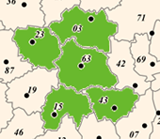
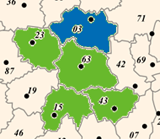
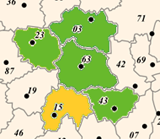
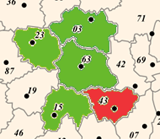
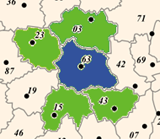
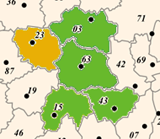 Creuse
Creuse